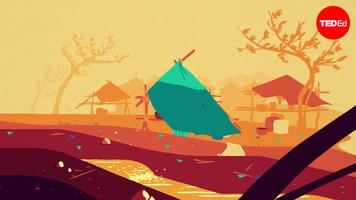Safia Elhillo: "To Make Use of Water"
Tanya Boucicaut: Zora Neale Hurston's "Their Eyes Were Watching God"

Baritone thunder. Snarling winds. Consuming downpours. Okeechobee, the hurricane of 1928, forced many to flee their ruined communities. But for Janie Crawford, it inspired an unexpected homecoming. So begins Zora Neale Hurston's acclaimed novel "Their Eyes Were Watching God," about a Black woman's quest for love and agency. Tanya Boucicaut dives...
Stephanie Honchell Smith: How to love, according to Rumi
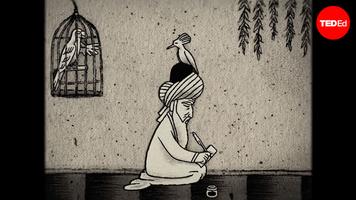
According to legend, the renowned scholar Jalaluddin Muhammad Rumi was giving a lecture when a disheveled man approached and asked him the meaning of his academic books. Rumi didn’t know it yet, but this question and this man would change his life. So, who was this mysterious figure, and how did he influence Rumi’s worldview? Stephanie Honchell ...
Thula Simpson: How did Apartheid happen, and how did it finally end?
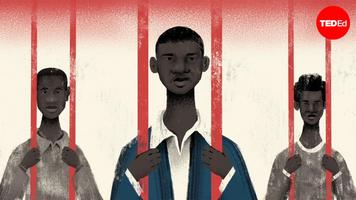
For 46 years, South Africans lived under Apartheid, a strict policy of segregation that barred the country’s Black majority from skilled, high-paying jobs, quality education, voting, and much more. So, how did these laws come to be? And how did this era of institutionalized discrimination finally come to an end? Thula Simpson explores how coloni...
Birte Kristiansen and Petra Sijpesteijn: A day in the life of a teenager in medieval Baghdad
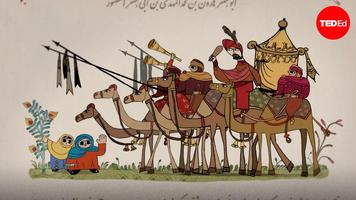
It's 791 CE. As the morning sun shines on the Golden Gate Palace, brother and sister Hisham and Asma prepare for the journey of a lifetime: the hajj, a holy pilgrimage to Mecca. They intend to travel with the big hajj caravan— but a last-minute mishap threatens to undo months of careful planning. Birte Kristiansen and Petra Sijpesteijn detail a ...
Timothy Williams: Ugly History: The Khmer Rouge murders
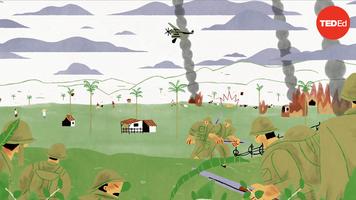
From 1975 to 1979, the Communist Party of Kampuchea ruled Cambodia with an iron fist, perpetrating a genocide that killed one fourth of the country's population. Roughly one million people were executed as suspected political enemies or due to their ethnicities, and another million died of starvation, disease, or overwork. How did this happen? T...
Petra Sijpesteijn and Birte Kristiansen: The rise and fall of the medieval Islamic Empire
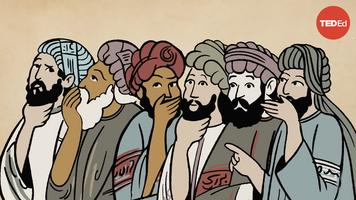
In the 7th century CE, the prophet Muhammad united the people of the Arabian Peninsula through the formation of Islam. Over the next 30 years, caliphs conquered vast areas beyond Arabia, including their mighty neighbors the Persians and Byzantines. But an empire this vast was at risk of conflict and fracture. Petra Sijpesteijn and Birte Kristian...
Haimanti Roy: Why was India split into two countries?
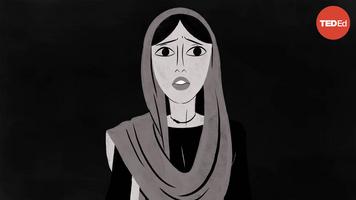
In 1947, the British viceroy announced that after 200 years of British rule, India would gain independence and be partitioned into Hindu India and Muslim Pakistan. What followed was one of the largest and bloodiest forced migrations in history: an estimated 1 million people lost their lives. What caused this violent aftermath? Haimanti Roy detai...
Lisa Krause: Who were Las Mariposas, and why were they murdered?
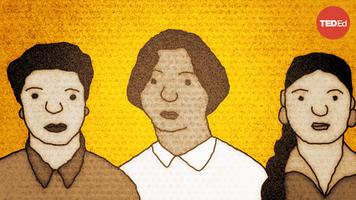
For over 30 years, thousands of people were imprisoned, tortured, and murdered under Rafael Trujillo's dictatorship in the Dominican Republic. Three sisters would go on to lead an underground revolution. But while their courage inspired many, it threatened the man in power, and their lives would come to a tragic early end. Who were these brave w...
Briana Brownell: How does artificial intelligence learn?

Today, artificial intelligence helps doctors diagnose patients, pilots fly commercial aircraft, and city planners predict traffic. These AIs are often self-taught, working off a simple set of instructions to create a unique array of rules and strategies. So how exactly does a machine learn? Briana Brownell digs into the three basic ways machines...
Georges Nzongola-Ntalaja: History's deadliest king
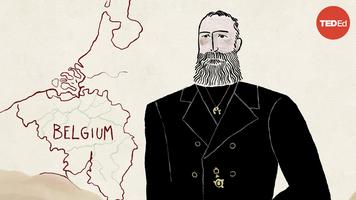
In 1904, Chief Lontulu laid 110 twigs in front of a foreign commission. Every twig represented a person in his village who died because of King Leopold's brutal regime in the Congo. His testimony joined hundreds of others to help bring an end to one of the greatest atrocities in human history. Georges Nzongola-Ntalaja details the horrific abuses...
Pekka Hämäläinen: The rise and fall of the Lakota Empire
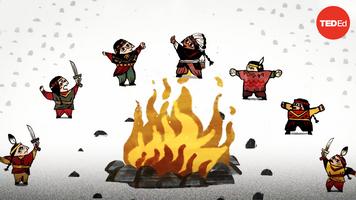
In 1776, a powerful empire was born in North America. The Lakotas had reached the Black Hills, the most sacred place and most coveted buffalo hunting grounds in the western plains. Located in what is now South Dakota, control of the Black Hills, or Paha Sapa, marked the tribe as the dominant power in the American West. Pekka Hämäläinen explores ...
Abdallah Ewis: The forgotten queen of Egypt
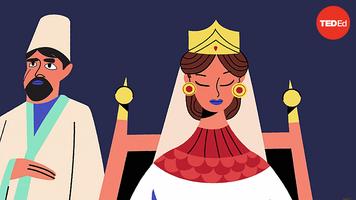
The year is 1249 CE. King Louis IX is sailing the Nile, threatening to overthrow the sultan and capture Egypt. Egypt's commanders ask the sultan's wife, Shajar Al-Durr, to report this news to the injured sultan. But they don't know the truth: the sultan is dead, and she is secretly ruling in his stead. Who was this impressive woman? Abdallah Ewi...
Geoff Emberling: What happened to the lost Kingdom of Kush?
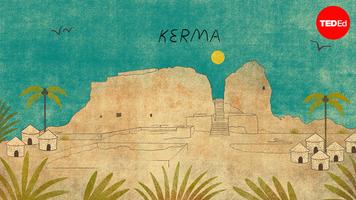
Along the Nile River, in what is now northern Sudan, lay the ancient civilization of Kush. Though they were once conquered by a powerful neighbor, the kings and queens of Kush would go on to successfully challenge two of the most dominant empires in history: the Egyptians and the Romans. So what happened to this African kingdom? Geoff Emberling ...
